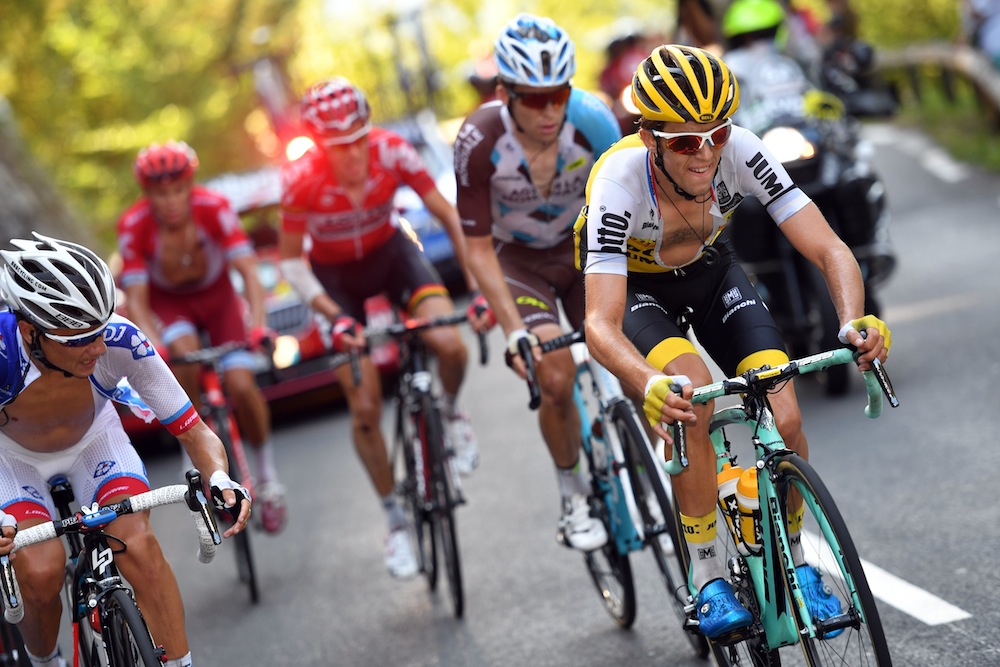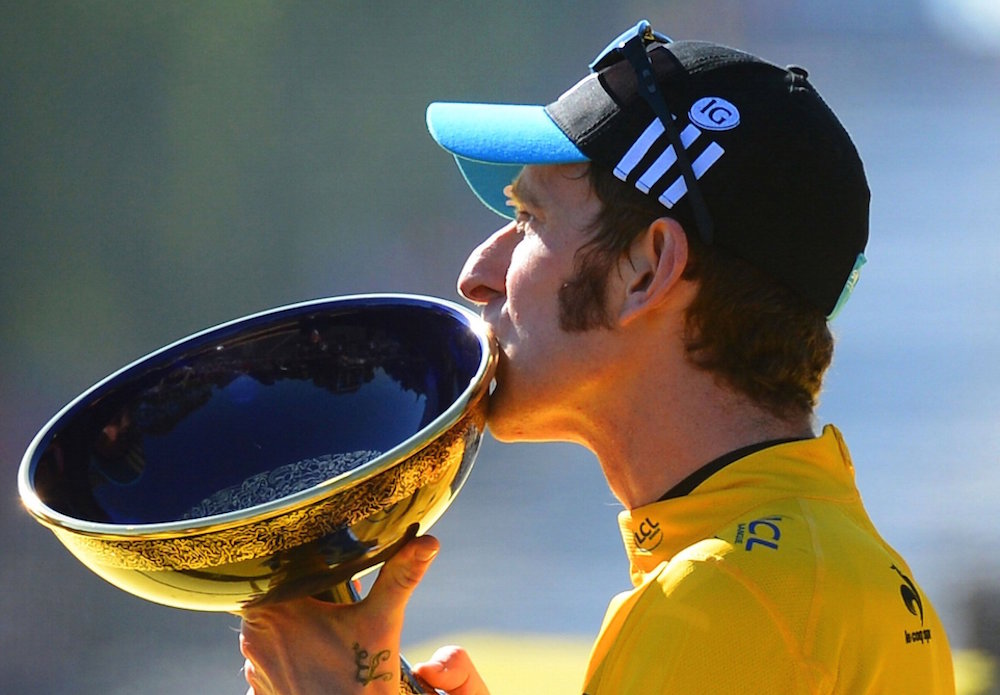Riders back Dave Brailsford's plan to publish TUEs as he defends Team Sky
Members of the pro peloton suggest publishing TUEs of riders could help the transparency of cycling


Riders from across the peloton have backed Sir Dave Brailsford's pledge to make Team Sky's future Therapeutic Use Exemptions (TUEs) public in an attempt to provide more transparency over the use of banned substances for medical purposes and said other teams should follow suit.
Brailsford broke his silence on Monday to defend Sky's use of TUEs, including steroids used by Sir Bradley Wiggins to treat asthma and allergies before three Grand Tours. He reiterated his stance that Sky is "100 per cent a clean operation."
The Sky boss revealed that the team would change its policy and make all TUEs public from now, as long as the rider consents to them doing so. He suggested that if a TUE remained private, the rider might not be allowed to compete.
>>> Romain Bardet ‘amazed’ by Bradley Wiggins TUE saga
"You ask yourself the question: if a rider needs a TUE you can either make it public so everyone knows they have a TUE, or they don't compete. I think that's the way this whole debate is heading," Brailsford told Sky News.
WorldTour riders Cycling Weekly spoke to agreed they would be willing to have their medical records released to the public if they had any TUEs.
Joe Dombrowski, who now rides for Cannondale-Drapac but spent two seasons with Sky in 2013-14, told CW "making them public would be a step in the right direction."
The latest race content, interviews, features, reviews and expert buying guides, direct to your inbox!
"I would be for it," Dombrowski said. "Anything that helps the sport become more transparent improves its credibility. I wouldn't want to do something as a rider that my friends and family would not be proud about.
Etixx-Quick Step's Iljo Keisse agreed he'd have "absolutely no problem" with his TUEs being made public.
"I'm OK with it as long as all teams do it, not just Sky," he said. "It would be nice if it was the same for everybody, if everybody agreed that they could be made public. It would change a lot for the whole TUE process if they were public."

New Zealander George Bennett had low cortisol levels ahead of the 2015 Giro d'Italia that indicated possible corticosteroid use. Instead of racing him, which team LottoNL-Jumbo could not do because it adhered to the stricter Movement for a Credible Cycling (MPCC) rules, it took him to its base in the Netherlands for tests that proved they were naturally low due to other circumstances. As a result, he came away much more experienced about corticosteroids.
"Brailsford said that all TUEs would be made public, but it has to be if the rider agrees to it? If a rider needs [cortisone] eight days before the Tour de France then they may just decide that they don't make that one public," Bennett said. "Then are we any much better off? I think we need for clarity.”
He, like Keisse, wants to see all teams making TUEs public. He added, "Maybe I'm naive, but I think cycling is on the path to being clean and this is maybe the last remaining thing."
American Larry Warbasse rides for IAM Cycling, one of the seven teams that adhere to the MPCC rules. The rules require riders to take an eight-day rest after taking a corticosteroid to avoid any grey areas.
>>> Tom Dumoulin says the Bradley Wiggins/TUE episode ‘stinks’
"I think that's a fair rule, if you need such a cortisone then maybe you shouldn't ride because you're not that healthy," Warbasse explained.
"I don't think there is a huge problem with TUE abuse but I would say there is some probably still going on. For example, you only need a TUE if you are going to be racing, so if you are using cortisone out-of-competition you don't need a TUE. I'm sure there's a lot more of that going on then the abuse of TUEs."
Sky and Wiggins have been under pressure to explain the 2012 Tour de France winner's three TUEs for intra-muscular injections of corticosteroid triamcinolone, which were among those released by hackers Fancy Bears two weeks ago.
Sky or Wiggins did not break any rules by using the TUEs – all were approved by the UCI – but there has been scrutiny over whether taking such strong steroids weeks before three major races was ethically the right thing to do.
Wiggins however denied in an interview with the BBC's Andrew Marr last Sunday he was trying to gain an "unfair advantage" by using them. "This was to cure a medical condition," he said.
Brailsford added, "We always look at the right thing to do and have policies and process to make sure that we perform in the right way and people can believe in us."
Gregor Brown is an experienced cycling journalist, based in Florence, Italy. He has covered races all over the world for over a decade - following the Giro, Tour de France, and every major race since 2006. His love of cycling began with freestyle and BMX, before the 1998 Tour de France led him to a deep appreciation of the road racing season.
